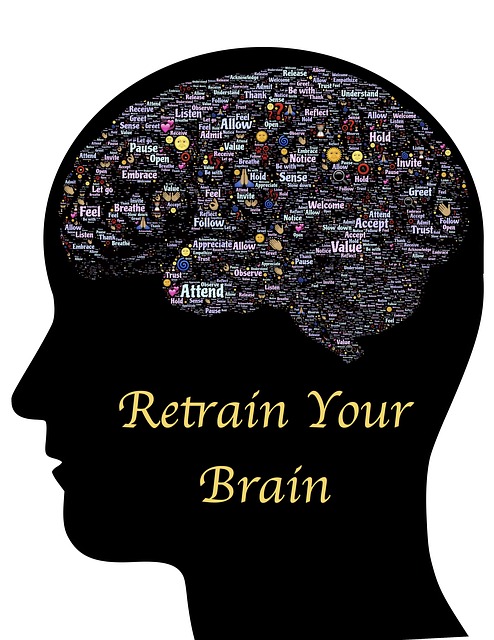Johann Hari, author of Lost Connections: Uncovering the Real Causes of Depression – and the Unexpected Solutions, was concerned about the extraordinary rise in the use of antidepressant drugs in America and the associated total focus on biological causes of depression. He set about doing worldwide research on the social factors contributing to depression. He was particularly interested in precursor events or situations that led to a person experiencing depression. His research led him to identify nine social factors that were contributing to the alarming rise in the incidence of depression and suicide. As the title of his book indicates, each of these social factors related to a “lost connection.” He describes the first of these causal factors as “disconnection from meaningful work”.
Loss of connection to meaningful work
Johann’s research (and that of his colleagues) covered a range of people engaged in different kinds of work, usually at lower levels in organisations. They found that certain job characteristics contributed to a loss of meaning for the worker. This disconnection with meaningful work resonates with the Job Characteristics Model developed by Hackman and Oldham in the 1970s as a basis for the design of jobs that generated positive psychological states such as the experience of meaningfulness and personal responsibility.
Johann, drawing on his own research and that of his colleagues, identified several job characteristics in different contexts that contributed to the loss of connection to meaningful work and resulted in people experiencing depression:
- Lack of control over work – research into the high incidence of suicide amongst staff investigating tax returns in the Taxation Office in Britain found that a key contributing factor was the lack of control over their work. No matter how hard they worked, the pile of work kept growing and they could never get on top of it. The ability to control the work environment and how work is done, known as “agency”, has been the subject of much research into what constitutes a psychologically healthy work environment.
- Lack of feedback – in the previous research, another factor identified as contributing to psychological illness was the lack of feedback about performance of the job. No matter how well or how poorly the work was done, there was no feedback received from supervisors or managers. This led to a sense of the work and the worker being devalued. The disconnection between effort and “reward” in terms of positive feedback contributed to people feeling “irrelevant” – they felt that they were not important or relevant to what the organisation valued.
- Lack of discretion – research into the experience of depression amongst typists in a typing pool demonstrated that a causal factor of depression was the lack of the ability to make decisions affecting the work and the typists’ output. The typists were totally disempowered because work was given to them with instructions on how it was to be done by people they did not know; they lacked understanding of what the documents involved or meant; demand was endless; and they were unable to speak to each other. The work was thus experienced as meaningless and “soul-destroying”. This research, along with other studies, highlighted the fact that people lower in organisations experience greater stress than those at higher levels who have a lot of responsibility because the latter have more discretion over what they do and how they do it.
- Lack of ability to make a difference – the example given by Johann related to a worker in a paint shop who spent all day adding tint to base paint and using a machine to mix the contents to provide paint with the colour requested by a customer. The repetitious nature of this task and the associated boredom contributed to the worker experiencing a lack of meaning because he did not make a real difference in people’s lives. Hackman and Oldham had previously identified “significance” of a job as a key element for a psychologically satisfying job. Associated with that was the degree to which a job provided what they termed “task variety” and “skill variety”. Work without variation and with no perceived impact, can be experienced as mind-numbing and deadening and lead to depression.
The loss of connection to meaningful work can be addressed at two levels. Organisations can develop greater awareness about what constitutes unhealthy work design and remedy deficiencies in the design of jobs. Action learning interventions can be helpful in this regard and, in the process, build employee’s self-awareness and sense of agency.
Workers, too, can develop inner awareness about what in their work is impacting their mental health and causing depression. They can explore this awareness through meditation and reflection and identify ways to remedy the situation. As they grow in mindfulness, they may be able to identify why they are procrastinating and not removing themselves from a harmful work situation. Johann found, for example, that the worker in the paint shop really wanted to change jobs and had already identified what job would give more meaning and joy for him. However, he was held back by his perceived need to achieve the external rewards of life – better income and a good car. Through meditation and reflection, it is possible to become more acutely aware of the cost of “staying’ versus changing and to be able to cope with the vulnerability involved in changing jobs.
____________________________________________
Image by Gerd Altmann from Pixabay
By Ron Passfield – Copyright (Creative Commons license, Attribution–Non Commercial–No Derivatives)
Disclosure: If you purchase a product through this site, I may earn a commission which will help to pay for the site, the associated Meetup group and the resources to support the blog.


